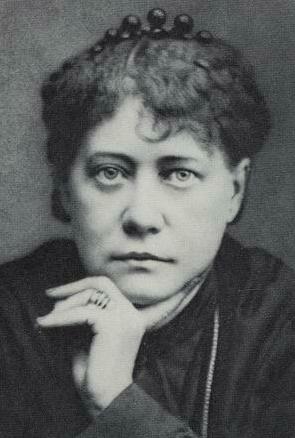Helena Petrovna Blavatsky (1831–1891)

AI Overview
Helena Petrovna Blavatsky (1831–1891) was a
Russian-born spiritualist, author, and co-founder of the Theosophical Society. As a central figure in the Theosophy movement, she claimed to reveal an ancient spiritual wisdom, drawing from various traditions like Hinduism, Buddhism, and Western esotericism. A controversial figure, supporters saw her as a sage while critics called her a charlatan, but her work profoundly influenced the spread of Eastern religions in the West and the development of movements like New Age.
Life and career
Early life: Born Helena von Hahn in Yekaterinoslav, Ukraine (then Russian Empire), she was a traveler and mystic from a young age.
Theosophical Society: In 1875, she co-founded the Theosophical Society with Henry Steel Olcott in New York City. The society’s aims included forming a universal brotherhood, studying religions, and investigating the laws of nature.
Major works: Blavatsky authored influential books such as Isis Unveiled (1877) and The Secret Doctrine (1888).
Influence: Her doctrines synthesized elements of various esoteric and religious philosophies, which helped to popularize Eastern thought in the West and establish an ideological basis for the New Age movement.
Controversy and legacy
Fraud and trickery: Critics accused her of being a fraud, pointing to speculation that she used trickery to produce phenomena like moving objects and telepathic messages from her purported spirit guides, the “Masters”.
Spiritualist phenomena: She was known for producing psychic phenomena, which she argued was a way to draw attention to her teachings, though many were more interested in the phenomena itself than the underlying philosophy.
Enduring impact: Despite the controversy, her work continues to be influential, with scholars still studying her life and the impact of her teachings on Western esotericism and religious thought.

